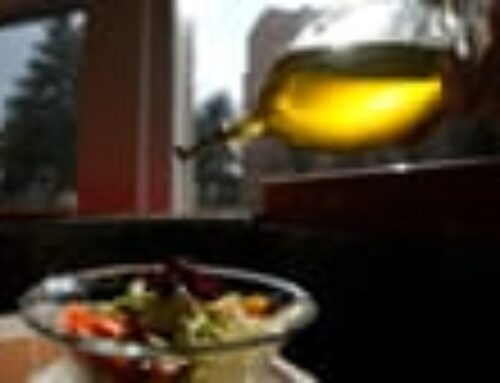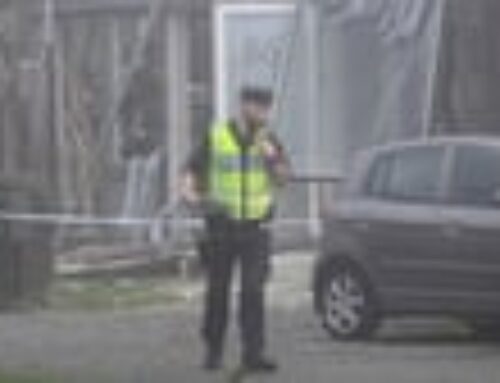Five gunshots blasted like fireworks on a sunny evening, just behind Amsterdam’s busy Leidseplein. To the horror of the Netherlands, a cold-blooded shooting has left prominent Dutch crime journalist Peter R de Vries fighting for his life in hospital.
Everyone from European leaders to the Dutch king Willem-Alexander and Amsterdam mayor Femke Halsema have expressed their shock at the ambush of “national hero” De Vries as he walked back to his car on Tuesday after recording a chatshow, on a busy street in broad daylight.
Within hours, the Dutch police arrested two men on the A4 motorway and are holding a 21-year-old from Rotterdam and a 35-year-old Polish national. The younger man has been named in Dutch media as rapper Delano G, the Polish man as Kamil Pawel E.
But many are speculating whether it is coincidence that De Vries, who made his name reporting on the kidnap of brewing magnate Freddy Heineken in the 1980s, has recently been involved in a high-profile gangland drug and murder court case, known as the Marengo trial.
The 64-year-old has, unconventionally, been acting as a representative and media spokesman for key prosecution witness Nabil B, a former gang member turned informant. Nabil B’s brother was murdered in 2018, and a separate trial of three men suspected of shooting dead his former lawyer Derk Wiersum in 2019 begins on Monday.
Meanwhile, the huge Marengo trial continues, with the public prosecutor accusing 17 alleged gang members of being part of a “well-oiled murder machine” that carried out gangland killings between 2015 and 2017. When chief suspect Ridouan Taghi was arrested in 2019 in Dubai, he was reportedly described by the city’s police chief as “one of the world’s most dangerous and wanted men”. De Vries said he had been informed he was on Taghi’s “death list” – something Taghi has denied. His lawyer Inez Weski has also strenuously denied allegations that Taghi has anything to do with the De Vries attack, or any others.
Whoever is behind it, the shooting is being seen as a wake-up call on the hard drugs and organised crime the Dutch government fears is undermining the rule of law. “It is a many headed monster that gets ever more violent and more unscrupulous: we cannot accept this,” said acting justice minister Ferd Grapperhaus after the attack. “Criminality in our country abuses what is good here, our logistics, our space, our freedom, and at the same time limits our freedom.”
Although in 2019, murder and manslaughter cases in the Netherlands hit a 20-year low of 125, Dutch police union the NPB has repeatedly claimed the country has “the characteristics of a narco state”, knife crime has risen among young people, and two years ago a report into drug-related criminality in Amsterdam described it as out of control.
Co-author Pieter Tops has said he believes the country’s light-touch penal system is “a major attraction” for criminals, while its roads and ports provide excellent infrastructure. Recently, Amsterdam’s mayor, chief prosecutor and head of police unveiled a new strategy to combat international and local crime which, “affect the security of citizens and the fabric of society and threaten the rule of law”.
Jill Coster van Voorhout, who runs a project at the University of Amsterdam to use artificial intelligence against organised crime, believes official figures represent a fraction of the truth. “Unfortunately, we hardly know more than the tip of the iceberg,” she told the Observer.
“Many people have assumed that this might have something to do with the alleged drug cartel of Taghi. Of course, that might not be true. But in terms of drug-related crimes, we do know quite a bit about the way the Dutch are either the transport hub for drugs, a well-known production hub, particularly in the south, and how our finance system – like that of the United Kingdom – is quite susceptible to criminality.”
In recent years, Dutch police have struggled with drug gangs including the so-called “mocro” (Moroccan) mafia and their gruesome internal battles. In 2016, a man’s severed head was left in front of a shisha lounge in Amsterdam, last year a fully equipped torture chamber was discovered in a shipping container in Brabant, while Dutch police have recently raided record numbers of meth labs and cocaine and heroin shipments.
Wouter Laumans, a crime reporter for the Het Parool newspaper whose co-authored novel, Mocro Maffia, coined the term, believes international crime feeds on a historically relaxed attitude to soft drugs, and in deprived areas of the Netherlands.
“Here you have people in the underclass who want to drive a Mercedes just like the bankers,” he said.
“The Netherlands is a very egalitarian society but in some neighbourhoods and social classes if you’re not good at football, your learning isn’t up to par and you’re not good at music, your chances of becoming a millionaire are very slim. A driving factor that brings people into crime is socio-economics.
“We are not a narco-state like Mexico or Honduras, but the business of drugs is big business.”
Some believe that the prevalence of social media makes it easier for criminals to target young people, and at the same time makes community work more difficult. Jack van Midden, director of the SAOA foundation, set up in 2006 to combat antisocial behaviour in young people with the help of street coaches and family interventions, said: “There have always been troublesome youths but at the moment you do see a hardening.
“In recent years, it’s been harder to keep track of them because of constant social media. Before, you might see someone developing in a worrying way, for example, getting into small-time crime, but now we don’t see young people on the street and suddenly they are in crime … Drugs have become a kind of earning model.”
A spokeswoman for the Dutch justice ministry told the Observer that the country is taking the situation seriously, and has recently helped dismantle the EncroChat phone network and operate an encrypted platform to entrap international criminals. “We have invested heavily in combating crimes that undermine the rule of law in recent years, but this is a long fight,” she said.
“Hard drugs are banned in the Netherlands and the minister has also said that people who take a pill or sniff coke at the weekends are partly responsible for keeping criminals in business.”
The scene of Tuesday’s attack is a sea of flowers and messages of support. Meanwhile, in Dam square in the centre of the city, someone has laid 4,000 white roses and an accusing message. “Is it an attack on press freedom?” it reads. “No, it is an attack on his role as adviser in the Marengo trial … Peter, hang on!”





